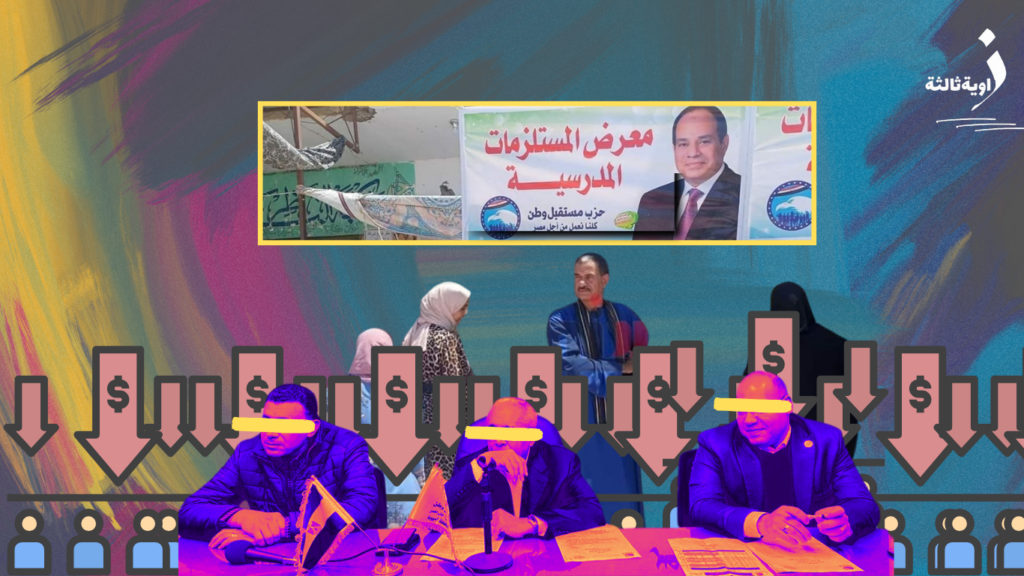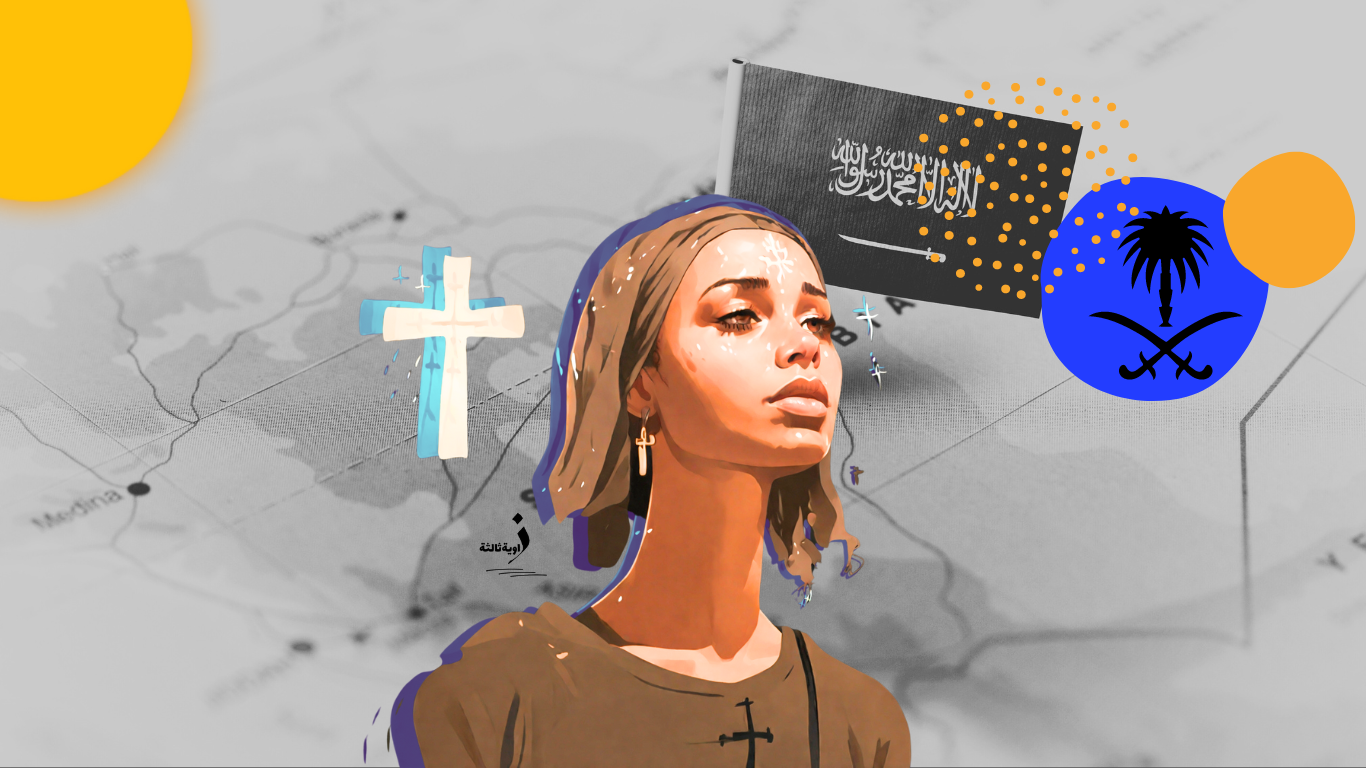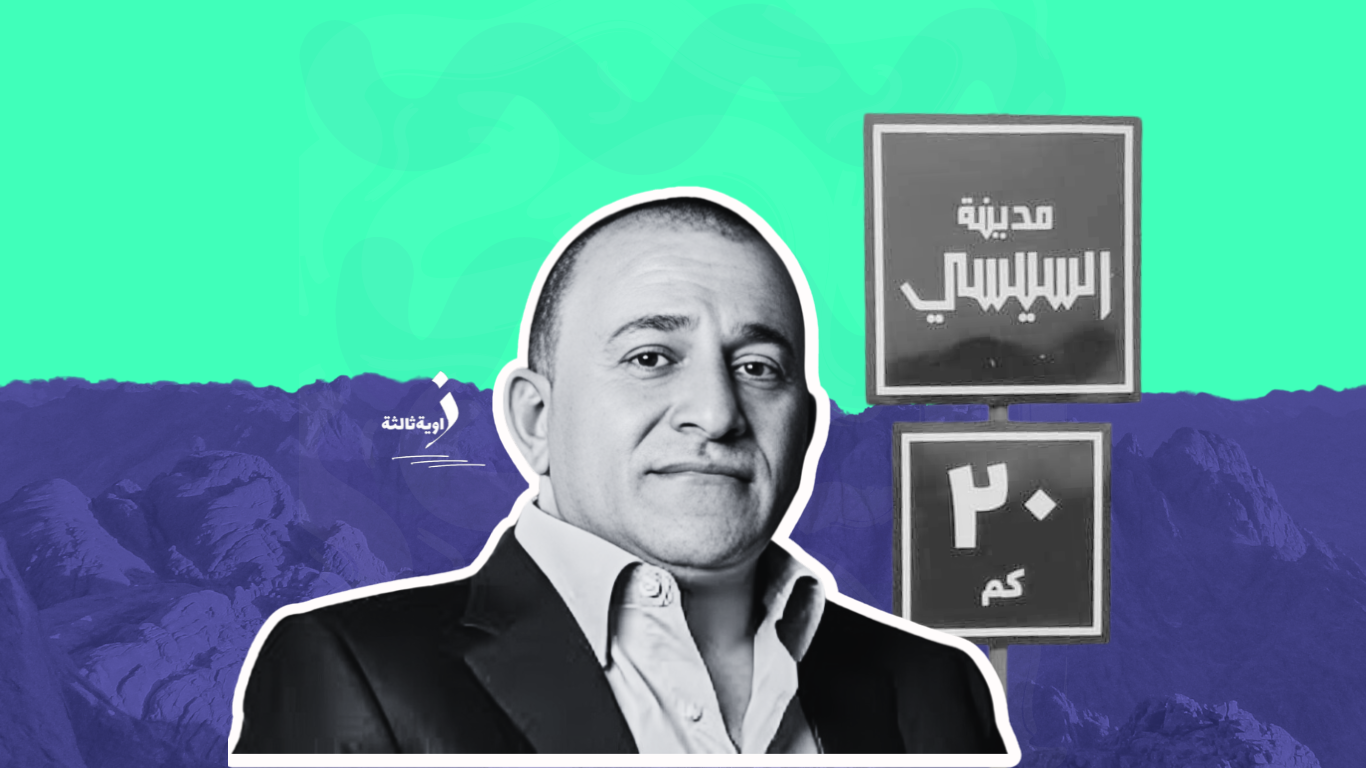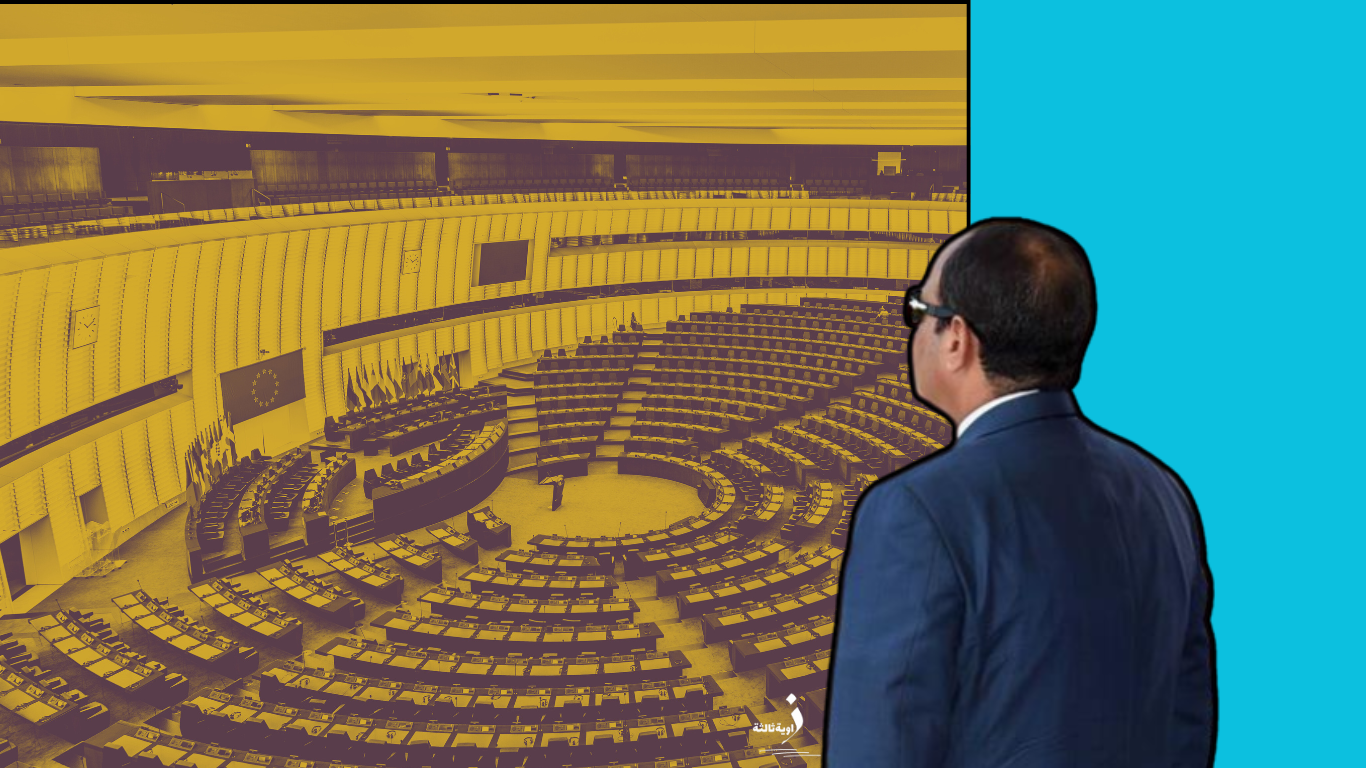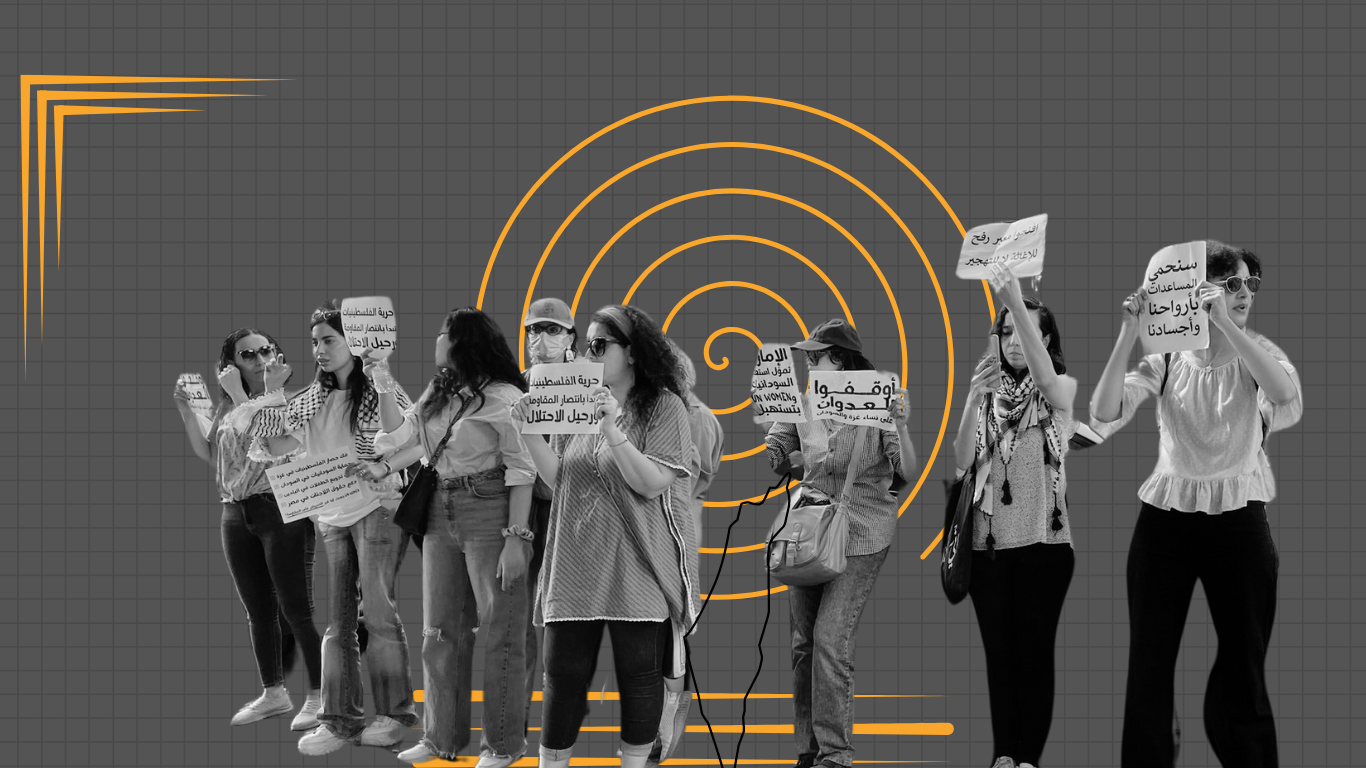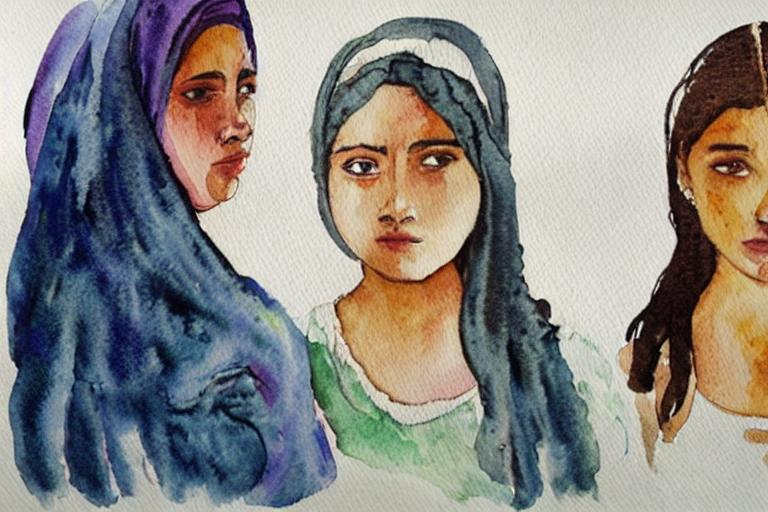The electoral silence period, scheduled during the 2024 presidential elections, began on Thursday midday and continued on the past Friday and Saturday.
Electoral silence refers to the period during which all forms of election campaign advertising for candidates cease to avoid influencing the voters’ preferences and decisions, leaving them space for independent choices. Voting is set to commence within 48 hours, starting from Sunday morning, in 11,631 committees within 9,367 electoral centers distributed across all provinces of Egypt.
According to the Law of Direct Political Rights of 1957, amended in 2014, Article 24 states that election campaigning begins from the date of the final list announcement of candidates until 12:00 noon of the day preceding the voting day. In the case of a runoff, campaigning starts the day following the announcement of the results of the first round and continues until 12:00 noon of the day preceding the runoff.
Campaigning outside these specified times is prohibited. Articles 25 and 26 of the law set the maximum expenditure on campaigning and receiving necessary donations, stating that the maximum limit for a candidate is 500,000 Egyptian pounds (16,200 US dollars), and 200,000 pounds (6,400 US dollars) in the runoff stage. The percentage of donations from the total expenditure is not allowed to exceed 5% of the declared limit for campaign spending. However, the National Elections Authority, in its decision No. 15 of 2023, allowed an increase in the funds allocated for campaigns, setting the maximum limit for each candidate at 20 million pounds (648,300 US dollars), and in the case of runoff elections, the maximum limit is five million pounds (approximately 162,000 US dollars).
Article 31 of the law outlines prohibitions during the election campaign period, including the use of state-owned buildings, facilities, transportation, public sector companies, and state-contributing institutions for advertising any of the candidates. The list of prohibitions also includes the use of public facilities, places of worship, universities, schools, and other public and private educational institutions, as well as the use of public funds and funds from public sector companies or private sector or civil society associations. Writing on the walls of government or private buildings is also prohibited.
Article 34 prohibits the exploitation of public office powers in advertising for a specific candidate “in a way that undermines equal opportunities among citizens.” Lastly, Article 35 of the law prohibits receiving donations or contributions from foreign countries or international organizations, or any entity that includes a contribution from an Egyptian person (natural or legal) or foreign person (natural or legal), or any foreign entity, regardless of its legal form.
Despite the clarity of the aforementioned legal provisions, which decisively indicate the prohibitions that presidential candidates and their electoral campaigns should abstain from, we have observed a number of violations and practices that may indicate a breach of these legal provisions.
Open Budget
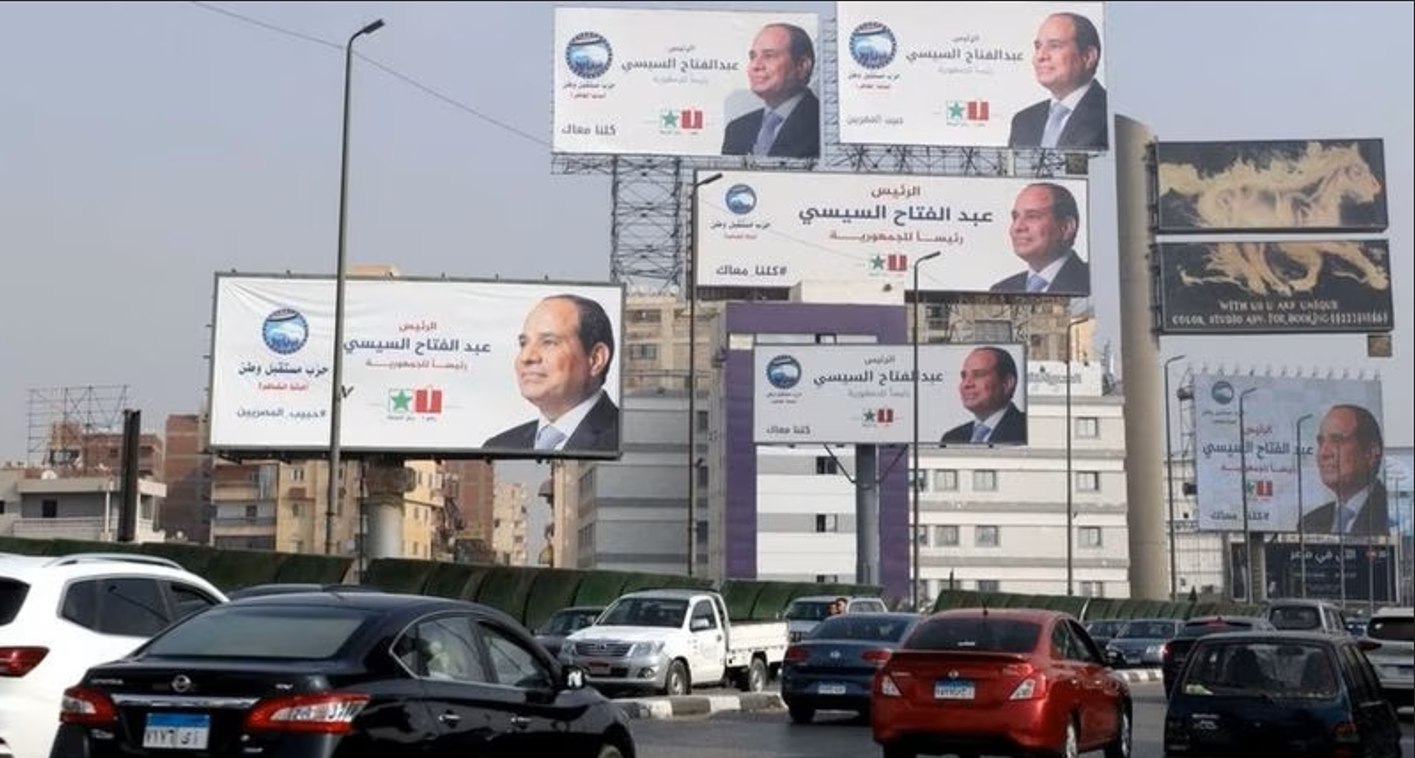
According to a report from the specialized economic site “Bloomberg East,” the estimated spending of the four candidates on road advertisements alone, used in election campaigning, is 400 million Egyptian pounds (13 million dollars).
According to the aforementioned previous decision regarding the maximum each candidate can spend on their electoral campaign, which is 20 million pounds in the first round, the total expenditure should be a maximum of 80 million pounds (259,310 dollars). However, the estimated figure reported by the platform, based on data collected from advertising companies participating in the election campaigns, exceeded the legal limit by approximately 320 million pounds (10,372,700 dollars). This contradicts Articles 24 and 25 of the Law of Direct Political Rights and the procedures approved by the National Elections Committee.
One of the owners of advertising companies participating in the campaigns, as confirmed in the report, stated that the spending exceeded 400 million pounds but remains less than the spending in the previous 2018 presidential elections by a percentage of up to 30%.
He pointed out that “the Future of the Nation and Homeland Protectors parties control about 95% of external advertisements and agreed on their locations since last July.” This agreement was made before the official start of the election process and the submission of nomination papers by any of the candidates. According to the advertiser, these two parties are the main supporters of the current president and presidential candidate Abdel Fattah el-Sisi for a third term. Consequently, approximately 95% of the advertisements, estimated at around 380 million pounds (12,317,600 dollars), were allocated for his promotion alone on road advertisements. The remaining amount was allocated to the other three candidates, and it was noted that there were few promotional banners for them compared to those dedicated to el-Sisi.
A Fourth Candidate Absent
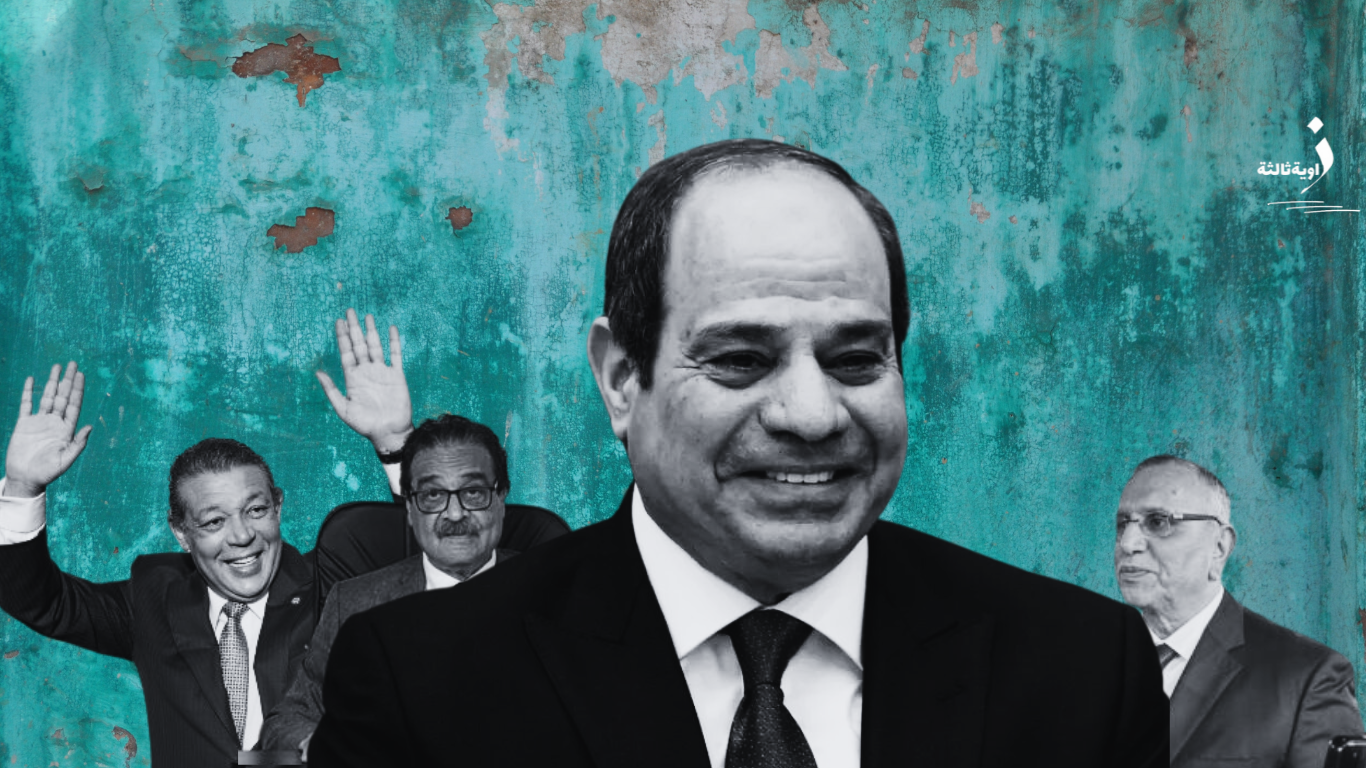
In the ongoing Egyptian presidential elections, four candidates are competing: Abdel Fattah El-Sisi (The current president of Egypt); Farid Zahran; Abdel Sanad Yamama; and Hazem Omar.
Since the beginning of the advertising campaigns, the candidates have sought to adhere to all practices aimed at attracting votes and informing voters about their proposed election programs. However, the campaign of candidate El-Sisi deliberately took a different path.
On November 9th of last year, Mahmoud Fawzy, the head of his election campaign, stood at a press conference broadcasted by “Extra News,” responding to citizens’ questions about El-Sisi’s election program. He said, “Great leaders present visions and set broad goals, not just projects and election programs. The election program is presented by a member of parliament when running for election in his district, and the government can present it when seeking the parliament’s confidence. The program means projects, but candidate El-Sisi will present a vision, and the vision sets achievable goals with an infinite number of projects, and this is what has actually been presented on the ground.”
The answers of the campaign’s head indicated the approach they were taking. These words received varied reactions, with some seeing El-Sisi as “known for his achievements and national projects visible to all.” Others viewed these statements as “mockery and belittlement” of citizens/voters, considering it an “imposition of reality without respect” and a failure to present a clear presidential program.
El-Sisi’s campaign continued along the same lines when the candidate was absent from a program which aired on CBC days ago, this program hosted a debate with all presidential candidates, while the other three candidates’ campaign members, led by their campaign member Emad Khalil, attended. He affirmed that their candidate “promises more civil rights, diversity, and opening up the public sphere.”
The absence of El-Sisi from the debate and the presence of a representative in his place sparked criticism from some social media users who saw the scene – as they described it – as the best description of the ongoing presidential elections. In this scene, “the three candidates are debating the assistant to the candidate, not even the director of his election campaign,” while the candidate himself did not engage in any election tours or dialogues and did not present a clear program.
Forced Mobilization of Employees
Operations to mobilize the votes of employees in government institutions continued, directing them to the polling stations. We previously published in “Zawia3” a report on some aspects of mobilization practiced by entities close to the regime, security entities, under the title: “By Direct Order: Coercive Measures in Preparation for the Presidential Elections.” This report outlined how personal identities of employees, workers, and vendors were collected, a matter we observed during our monitoring of the election scene that began on the morning of the day.
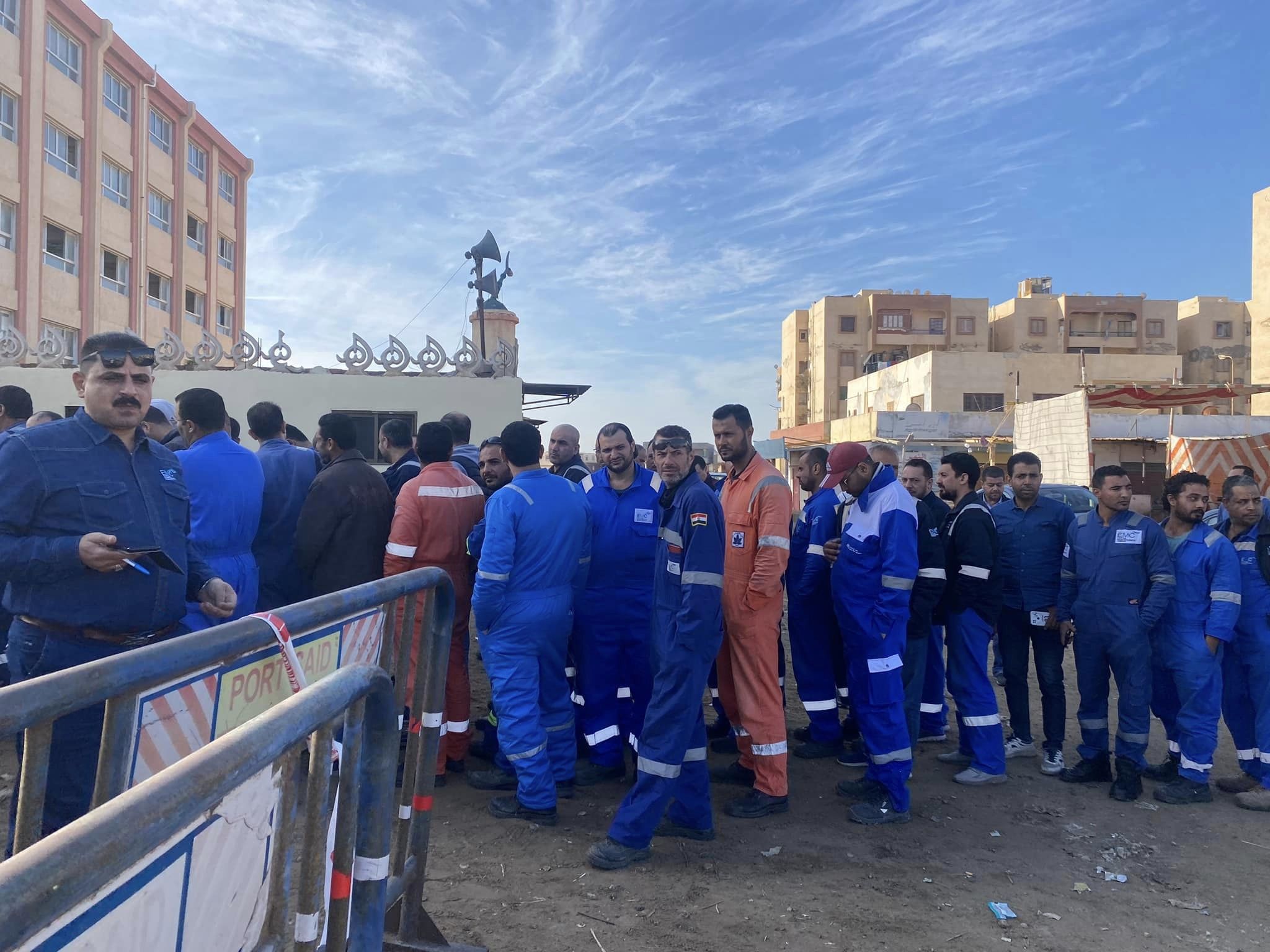
Mohammed, an employee at a hospital in Helwan, south of Cairo, commented, “This morning, the employee in charge of the workers came to me and informed me that he urgently needed my ID. When I asked why, he replied, ‘Don’t question me.’ I was forced to hand it over, knowing that it would be used in the ongoing elections.” His colleague, Jaber, pointed out that all workers’ IDs were collected from them in the morning without being asked to vote for a specific candidate.
Additionally, Zawia3 learned that directives were issued to employees of several government hospitals in central Cairo to go and participate in the voting process on the first day after the end of the working day.
Najat, an alias for an employee at a government hospital in Shubra, mentioned that she would vote but stated, “I will invalidate my vote or nominate any other candidate despite not knowing the rest of the candidates.” This sentiment was echoed by some workers in various sectors, including education, finance, health, supply, and youth centers under the Ministry of Youth and Sports. According to an employee at a restaurant in October City, some police officers directed instructions to restaurant workers in the area to go to the polling stations in the morning and prove their attendance.
We also observed the Petroleum Authority directing its companies to mobilize workers, gather them in morning buses, and head to the polling stations.
According to several workers we spoke to in petroleum companies (Amoc for Petroleum, Cooperation for Petroleum in Alexandria, Gamsa for Petroleum, Egypt Gas, Cairo for Petroleum Refining, Alexandria for Petroleum, and Hamra Oil), strict instructions were issued by the head of the General Federation of Workers in Egypt and the General Union of Workers in the Petroleum Sector, Mohamed Jabran, emphasizing the necessity of participating in the voting process, or else non-participation would be considered a neglect of their national duty.
They mentioned that some managers hinted at a penalty of 500 pounds to be imposed on those who did not participate in voting, stating, “We don’t have 500 pounds (16.17 US dollars) to feed our children, so we are forced to participate out of fear of the penalty.”
According to amendments to the Law on the Exercise of Political Rights and its amendments by Law No. 140 of 2020, a financial fine was imposed on those who did not participate in electoral events. Article 57 stipulates, “A fine not exceeding 500 pounds (16.1 dollars) shall be imposed on anyone whose name is registered in the voter database and fails without excuse to cast his vote in the election or referendum.”
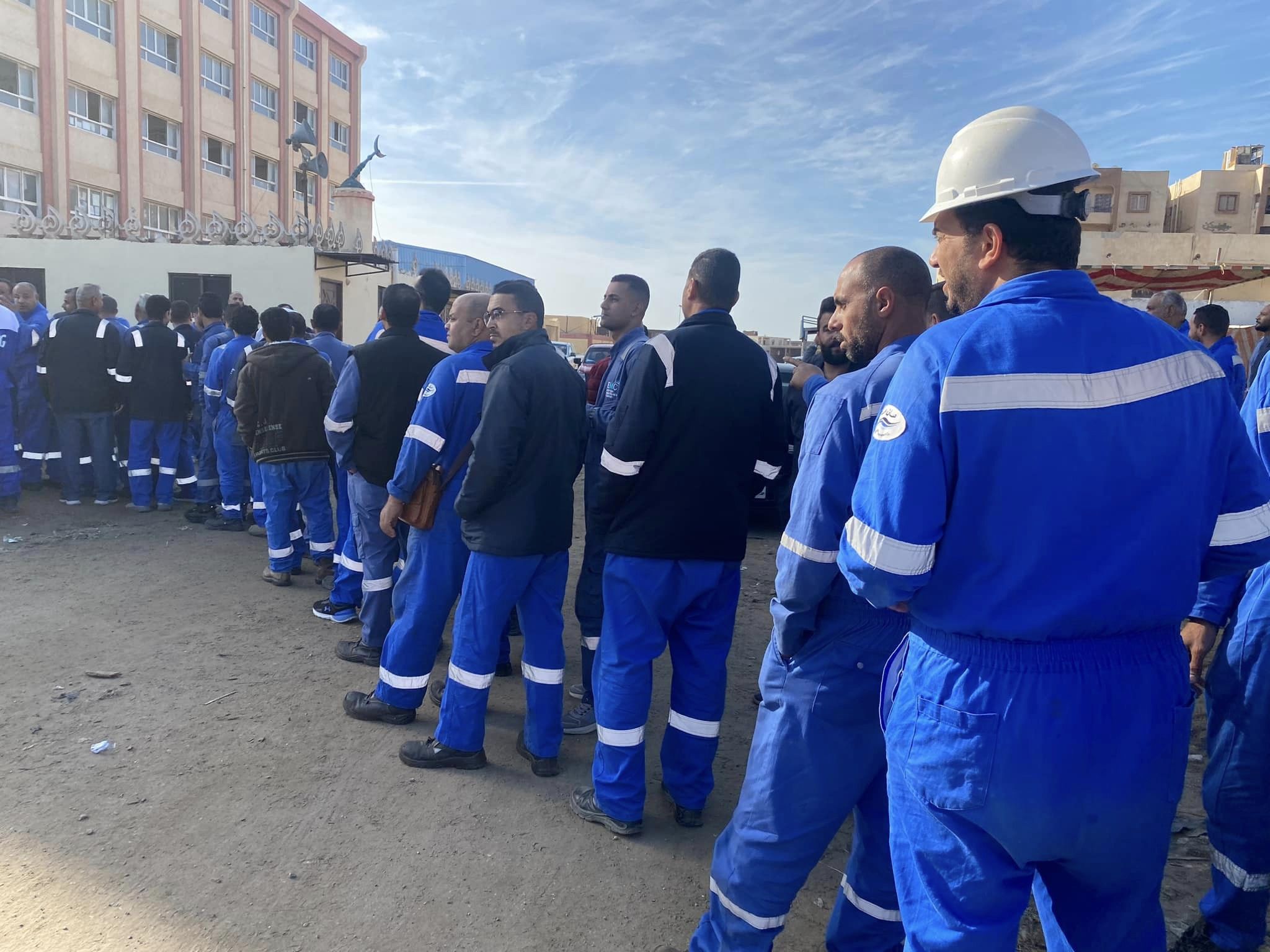
According to our discussions with several pensioners, especially those enrolled in the “Dignity and Solidarity” program, they unanimously expressed that they are participating in the voting “under duress.” Social welfare units have notified them of the necessity to prove their participation in the elections by applying phosphoric ink on their fingers to receive next month’s pension. Many of them considered this as exploitation of their needs, forcing them to vote. This is seen as a violation of Articles 31 and 34 of the Law on the Exercise of Political Rights, which prohibits the use of public office or government positions to influence or pressure voters to elect a specific candidate.
Electronic Mobilization
Zawia3 observed through monitoring some social media applications, a number of channels and electronic pages that became active during the past three days (officially designated as the electoral silence period), urging citizens to join convoys supporting the candidacy of Sisi.
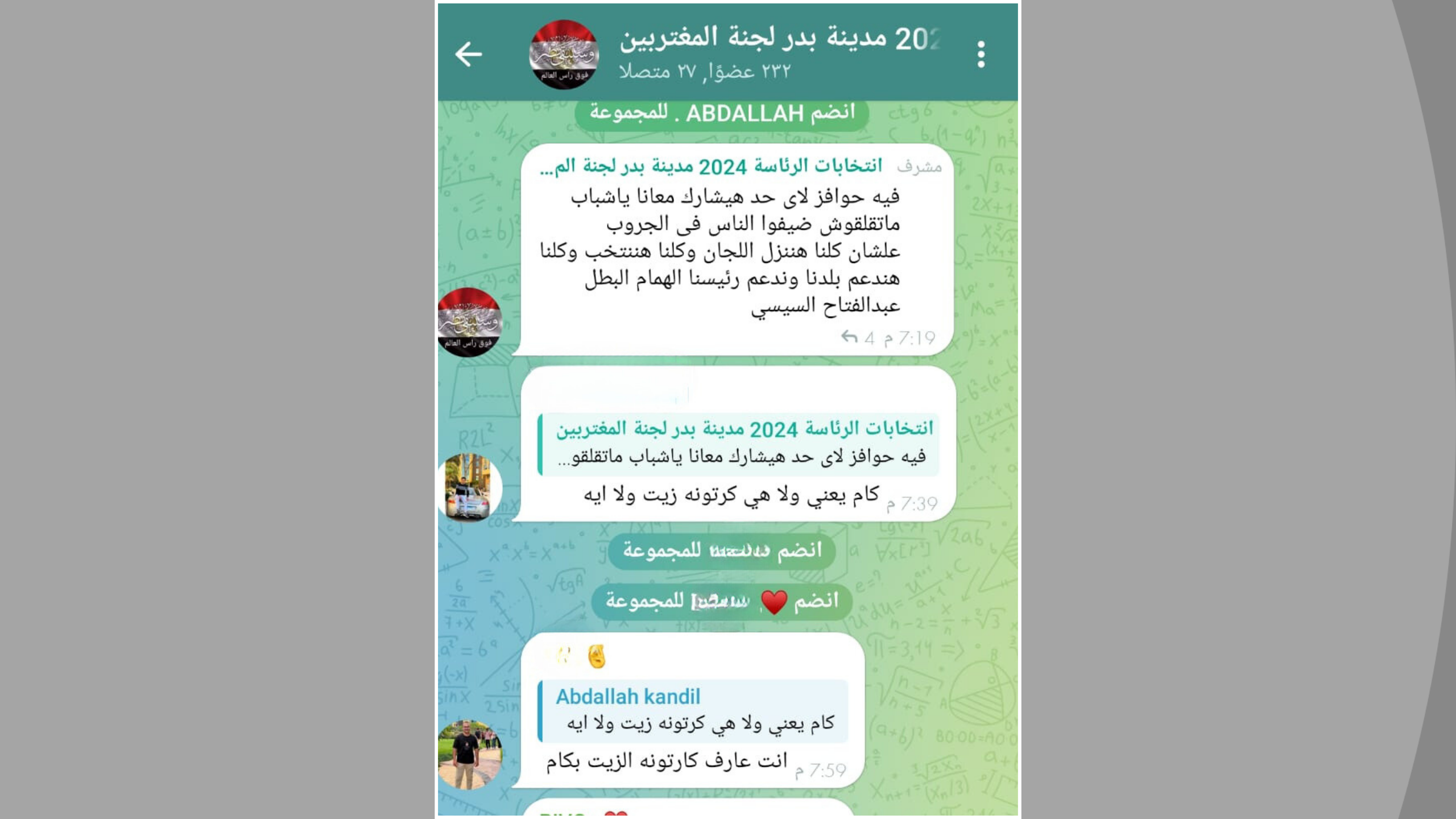
These pages are managed by individuals affiliated with the “Future of the Nation” party, closely linked to the current regime, on the Telegram application under the name “2024 Presidential Elections Badr City Expat Committee.” They call for the election of Abdel Fattah el-Sisi for a third presidential term, emphasizing the mobilization and gathering of voters in dedicated buses from in front of the gates of Badr University (the first university affiliated with the Cairo Investment and Real Estate Development Group, managed by the “CIRA for Education” company, established in 2013, with direct investments announced last November with the Egyptian Sovereign Fund and with Al Ahli Capital Holdings since 2021). It is stressed that the participating expatriate voter must hold personal identification from provinces other than Cairo.
The group’s responsible party instructed assistants and voters to share the group’s link with all employees and all electronic groups related to students, stating to voters: “The buses will transport you from in front of the university to participate and vote, bringing you back again, from nine in the morning until nine in the evening today, during the next two days and until the end of the voting period, to elect and support President Sisi.”
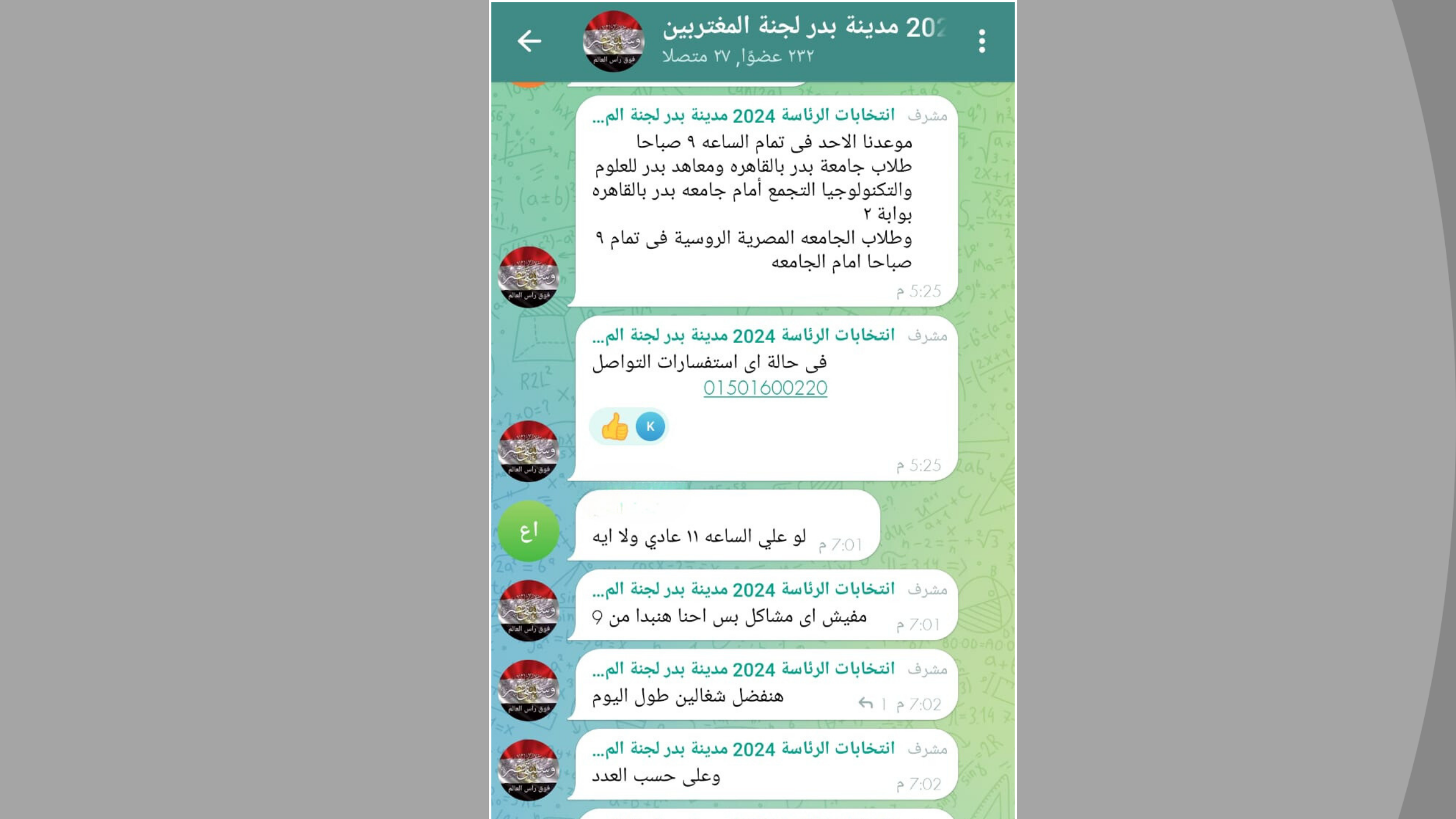
He emphasized the necessity of joining the group and sending all the voter’s data who wishes to join “to multiply the numbers and determine the number of those who receive incentives and financial rewards for participation.”
According to the instructions of the group’s officials, the gathered numbers, including students and staff from Badr University in Cairo and Badr Institutes for Science and Technology, assembled at 9 a.m. today, starting from Gate (2) at Badr University. Participants from the Egyptian Russian University set off in dedicated buses from their location. Those in charge continued to send more buses throughout the voting day to collect additional participants who joined in hopes of receiving the reward amount, estimated by the group at 200 Egyptian pounds (6.4 US dollars).
The group supervisor outlined the plan as follows: “The numbers are unlimited, we accept not only students, and the only condition is to have an ID card and a non-Cairo address. The assembly point is in front of Gate 2, and transportation will be by buses to the Expatriates Committee headquarters in the third district in front of the Badr Police Department. After that, incentives and financial rewards will be distributed, and then participants will return to the assembly points.”
There are also reports from governorates indicating efforts to mobilize government employees in various entities, including schools, agricultural associations, and health directorates, through attendance registers.
Restrictions on Journalists
The conclusion of the first day of the voting process saw the Higher Media Council referring the responsible individuals for the “Sahih Masr” platform, tasked with fact-checking news, to the Public Prosecutor for investigation into complaints accusing them of spreading false news about the presidential elections. The platform posted a report on Twitter indicating that the United Company, which manages most media and journalistic institutions in Egypt, distributed a list of “prohibitions” to be avoided during election coverage. Notable prohibitions, according to “Sahih Masr,” include preventing the filming of any violations during the voting process, prohibiting the broadcast of any materials showing mobilization or gathering of citizens through buses or otherwise, and preventing the display of citizens’ reluctance to participate in voting.

